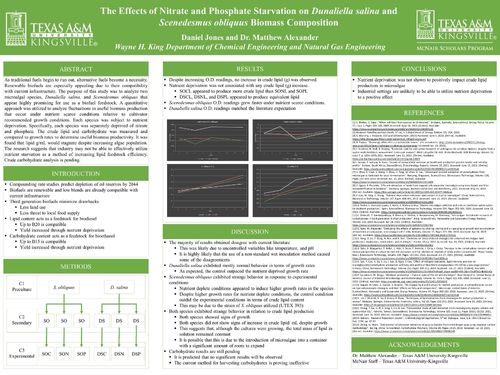As traditional fuels begin to run out, alternative fuels become a necessity. Renewable biofuels are especially appealing due to their compatibility with current infrastructure. The purpose of this study is to analyze two microalgal species, Dunaliella salina, and Scenedesmus obliquus that appear highly promising for use as a biofuel feedstock. A quantitative approach will be used to analyze fluctuations in useful biomass production that occur under nutrient scarce conditions relative to cultivator recommended growth conditions which will act as a control. Each species will be subject to nutrient deprivation. Specifically, each species will be deprived of nitrate and phosphate separately. The percentage of lipid and carbohydrate biomass per dry weight gram will be measured and compared to growth rates to determine useful biomass productivity. The data collected from this study will aid future experimenters in the optimization of their microalgal experiments, and it will help engineers looking to create a plant or process for refining microalgae into biofuel. It is expected that both lipid and carbohydrate production will increase during the beginning days of nutrient deprivation, but over time a decrease will be noted.
Faculty Mentor: Dr. Matthew Alexander
Department of Chemical and Natural Gas Engineering


